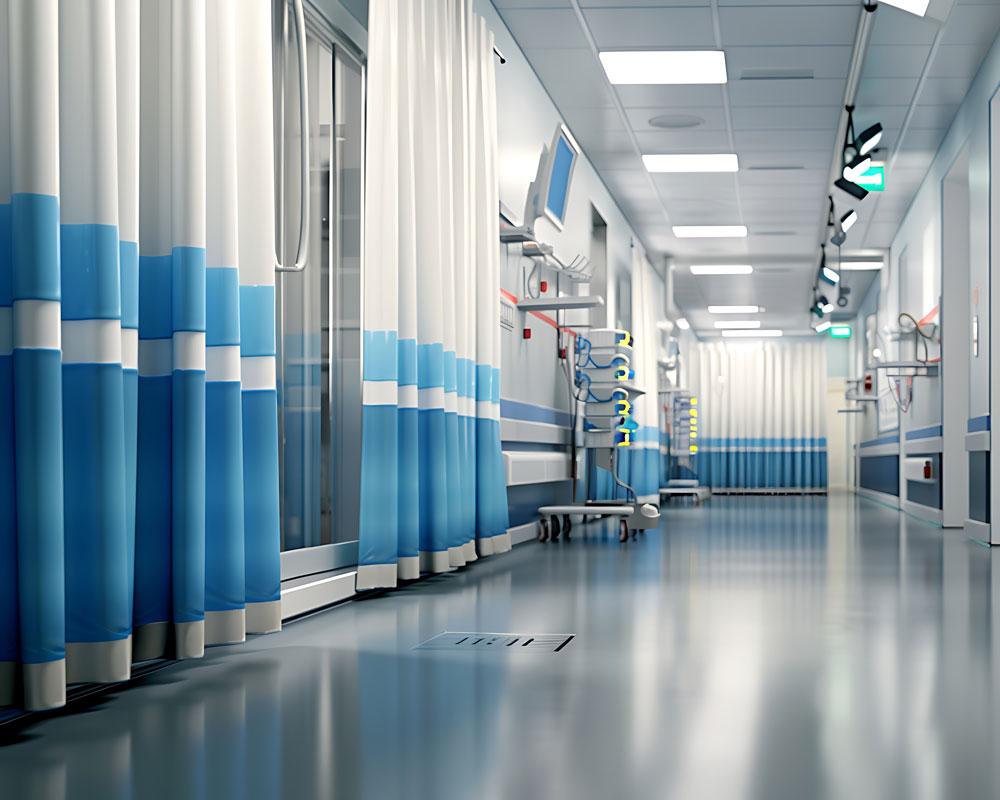The NHS is the first health service in the world to embed net zero into legislation, with a goal of reaching net zero by 2040 for emissions it directly controls and 2045 for emissions it can influence and every trust must play its part. Leeds Teaching Hospitals has recently installed a solar canopy over a car park at Wharfedale Hospital.
The £1.1 million project will provide sustainable solar power to the hospital, reduce its reliance on conventional energy sources and therefore reduce the Trust’s carbon footprint.
It is anticipated that the 617 solar panels will reduce carbon emissions by 43.7 tonnes per year and save the Trust £75,000 annually. The electricity generated will also reduce the use of grid electricity by 15 per cent, this is the equivalent to powering 60 UK households.
Solar panels generate electricity from the sun – so the energy is essentially free.
Eventually, solar panels end up paying for themselves and represent significant savings on energy bills. T
his money can then be spent elsewhere, for example maintenance and infrastructure improvements or on the day-to-day running costs – which can then in turn lead to improved facilities and better care for the community.
Long-term investment
With a lifespan of 25 years or more, solar panels represent a long-term investment. The initial set up and maintenance costs are paid for in the savings made against traditional energy tariffs.
The electricity produced by solar panels is clean and renewable and does not emit greenhouse gases or pollutants. By reducing reliance on fossil fuels, buildings with solar panels contribute to lower carbon emissions and help combat climate change.
This is especially important with the NHS’s net zero goals.
By reducing the demand for fossil fuels, solar panels can improve air quality and therefore improve health outcomes in the local area and further afield.
Craige Richardson, director of estates and facilities at LTHT, said: “The solar canopy at the Wharfedale site exemplifies the Trust’s dedication to both environmental sustainability and the health and well-being of the communities we serve. It’s a real positive that the power required to run Wharfedale Hospital will be partly supplied by green energy, especially as the energy demands for the site will increase with the opening of a permanent Elective Care Hub.”
This investment is part of the Trust’s long-term plans to develop services at Wharfedale Hospital, which also includes a proposed £15m Elective Care Hub. This hub will include two new theatres, a recovery area, admissions and discharge area alongside making an existing ward operational overnight.
Sustainability projects
The Trust has been at the forefront of investing in energy-efficient projects, with an impressive commitment of over £22 million. These projects, including the canopy, have been made possible through successful bids for the Public Sector Decarbonisation Scheme Government funding.
The range of initiatives implemented by the Trust includes the installation of heat pumps and state-of-the-art LED lighting, building fabric upgrades, and connections to Leeds PIPES, a low-carbon district heating network.
According to its Green Plan, Leeds Teaching Hospitals NHS Trust has a vision to be the best for specialist and integrated care and improve the health of patients through the provision of high-quality care.
In order to provide the best quality care and improve quality of life for patients, the Trust recognises that it needs to reduce its impact on the environment.
Since Leeds City Council declared a climate emergency in 2019, organisations and individuals across the city have been working towards the goal of making Leeds a zero-carbon, nature-friendly and socially just place to live.
The Trust, which is one of the largest teaching hospital trusts in the UK, aims to become one of the greenest NHS hospital trusts in the UK and play a central role in reducing carbon emissions across the city.
Net zero
Over the past decade, the Trust has achieved a 34 per cent reduction in carbon emissions.
The key elements of the Trust’s green plan are to ensure the Trust aligns with the wider NHS ambition to be the first healthcare system in the world to reach net zero carbon emissions; prioritise interventions that will enable the Trust to continue improving patient care whilst delivering carbon reductions and improving sustainability performance; and support increasing efficiency throughout the organisation





